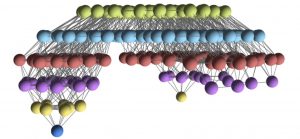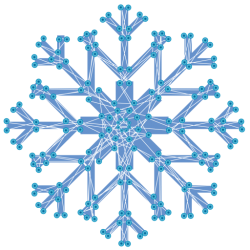Summary: The recent world has seen an explosion of available data, from structured data as the one gathered from sensors, experiments or direct measurements, to unstructured data as the one that can be extrapolated from online resources, reports and surveys. The engineering world is shifting from model-centred simulations to the assimilation of data into the engineering process of modelling, decision making and optimisation. This opens up a wide area of research where large datasets are used to fine tuning engineering models, design uncertainty sets and infer knowledge about unknown parameters.
Robust data-driven decision making is going to substitute traditional methods of robust optimisation where exact problem parameters and distributions of uncertain variables are known or assumed to be known a priori. Optimisation processes run on models, whose inputs are assumed  to be exact or subject to erroneous estimation of distributions, can lead to solutions that are infeasible or far from the real optimum. The proposed research wants to overcome this problem by introducing real data into the optimisation process for having a more accurate estimation of the region of uncertainties and resilient optimal solutions. Statistical analysis test are run to detect the best distribution on non-linear regions of uncertainties, whereas a minmax problem needs to be solved to find the worst case scenario optimal solution. The focus will be mainly on combinatorial optimisation under uncertainties for which exist a wide range of applications in the aerospace field. The optimisation of air traffic control networks and airport scheduling for passengers, aircraft and operations are examples of aeronautical applications where a variety of freely available historical datasets from US and UK civil aviation services are available. The optimisation of ground station observations, with uncertainties on measurements and field of view, for the tracking of low earth orbit satellites are an example of a space related combinatorial problem.
to be exact or subject to erroneous estimation of distributions, can lead to solutions that are infeasible or far from the real optimum. The proposed research wants to overcome this problem by introducing real data into the optimisation process for having a more accurate estimation of the region of uncertainties and resilient optimal solutions. Statistical analysis test are run to detect the best distribution on non-linear regions of uncertainties, whereas a minmax problem needs to be solved to find the worst case scenario optimal solution. The focus will be mainly on combinatorial optimisation under uncertainties for which exist a wide range of applications in the aerospace field. The optimisation of air traffic control networks and airport scheduling for passengers, aircraft and operations are examples of aeronautical applications where a variety of freely available historical datasets from US and UK civil aviation services are available. The optimisation of ground station observations, with uncertainties on measurements and field of view, for the tracking of low earth orbit satellites are an example of a space related combinatorial problem.
Timeframe: February 2017 – February 2020
People: Mateusz Polnik, Annalisa Riccardi

